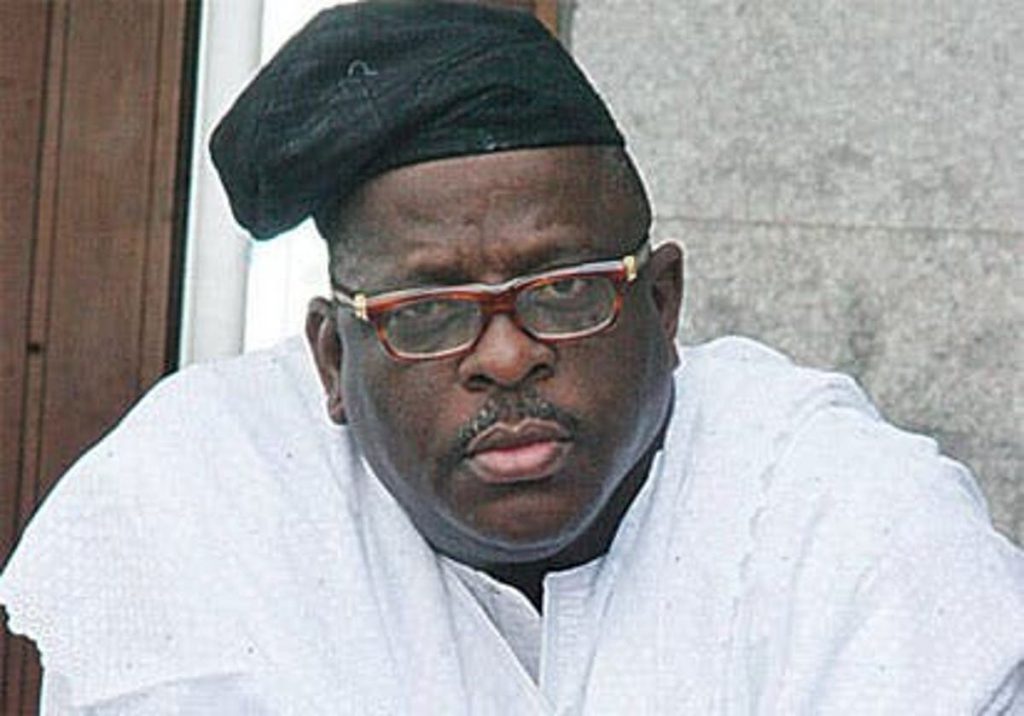OPINION
Kashamu Buruji: deconstructing Nigeria’s “grassroots” politics
By Seun Kolade
The death of Ogun state Senator, Kashamu Buruji, has generated a lot of comments and reactions in the Nigerian public space. Former President Obasanjo, in his reaction, did not pull punches when he denounced the deceased as one who, in his lifetime, “used the manoeuvre of law and politics to escape from facing (sic) justice on alleged criminal offense in Nigeria and outside Nigeria”. Many commentators have suggested, rightly in my view, that General Obasanjo’s intervention is driven more by personal animosity than any commitment to higher principles of ethical conduct and accountability. Nevertheless more and more people agree that death does not confer sainthood, and Obasanjo is entitled to his view. I will not belabour this.
Instead, I want to turn attention to the recent statement from former Lagos Governor Tinubu, who in his own reaction, described the late Buruji as “a notable leader in the country and a true grassroots politician.” The part that caught my particular attention is the phrase “grassroots politician”. On the face of it, this phrase describes a politician with close connection with ordinary people, and one whose activities are directed towards the interest and welfare of the masses of ordinary people. In Nigeria, it has a distinctive flavour and connotations.
 Source: https://currencyrate.today/converter-widget
Source: https://currencyrate.today/converter-widgetIn the aftermath of Kashamu’s death, multiple video clips have emerged of him spraying money in the streets. His funeral was attended with considerable fanfare, with a crowd of people defying all rules of social distancing in a chaotic frenzy. Unsurprisingly, some have taken this as further evidence of Kashamu’s “grassroots” credentials, even in death. I saw on one WhatsApp platform someone describing Kashamu as second only to Awolowo, at least in the politics of Ogun state!
It is not surprising that Tinubu hailed Kashamu as a “grassroots politician”. In many ways they are cut from the same cloth. The average Nigerian politician is heavily invested in poverty. It is the canvas from which they project paternal benevolence, and from which, for good measure, they can establish a structure of control. It is a simple and highly effective strategy. On the surface, handouts are the means by which the Nigerian politician endears himself to the masses of people. What is hardly considered, even if it is right in plain sight, is that handouts are also the means by which you debase a people by turning them into dependent beggarly spirits.
The tragic thing is that handouts, like drugs, are habit forming. People, after a while, become dependent on it. They embrace the illusion that hand outs are freebies, oblivious of the fact that it is at a huge cost to their dignity and agency as citizens. That is also why cheap populism, aka “stomach infrastructure”, is the modus operandi of the Nigerian politician. It is the effective “opium of the people”. That is how and why Tinubu has managed to control Lagos for so long. The people complaining and campaigning against the man’s hegemonic hold on Lagos are, by and large, long suffering tax payers who have had to pay more and more to, not the ones benefitting from “free” handouts.
It is easy, though, to focus attention on Tinubu and Kashamu. General Obasanjo himself is at least an admirer, if not a proponent, of this sort of “Amala” politics. It is why he not only eulogised the late Lamidi Adedibu, but also embraced and supported him as the kingsmaker in Oyo state. In one sense, we can’t entirely blame him, or any of these other politician. Until and unless a greater section of the populace see through Nigeria’s brand of grassroots politician for what it is, they will remain trapped under acquired dependency syndrome spearheaded by opportunistic politicians. And they will continue to be complicit in the country’s under-development.
Writer: Dr Seun Kolade















No Comment